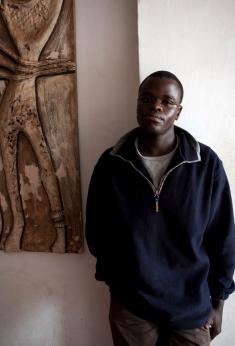This is the ninth in a series of articles from Uganda by Xtra freelance reporter Kaj Hasselriis.
***
A Ugandan doctor who has many gay and lesbian patients says the country’s anti-gay bill is a “disaster for public health” — and not just for queers.
“Gay people are mixed up in many relationships within the population,” says Paul Semugoma, a Kampala doctor. “Most gay men in Uganda get married to women and have families.”
Because the bill calls for the execution of all HIV-positive people who have same-sex partners, Semugoma says gays and lesbians are more fearful than ever about getting tested — which makes them more likely to pass on the virus to others.
“You can’t talk about HIV prevention and not talk about gay people,” he says.
If the bill passes, all those who are accused of being gay will immediately be forced to take an HIV test. If the result is positive, the punishment for homosexuality will increase from life imprisonment to the death penalty — even if the accused never transmitted the virus and even if they didn’t know they had it.
“It super-criminalizes people with HIV,” Semugoma says. “There is no reason we should criminalize someone just because they’re HIV positive.”
Unlike Canada, Uganda doesn’t currently criminalize people with HIV. The country has an estimated one million people with the virus, but only about one quarter of them know they have it.
One of Semugoma’s patients, Auf Mukwuya, is a member of a small group that Semugoma started for gays and lesbians with HIV. Mukwuya contracted the virus through unprotected sex because, like many other Ugandans, he was misinformed about how it’s spread.
“I thought that, if man and man play sex together, they cannot get HIV,” says Mukwuya. “Some people still have that belief.”
According to Rubaramira Ruranga, an HIV-positive man who leads an organization for Ugandans living with HIV, the country’s institutionalized homophobia already makes it next to impossible to spread gay-specific information about the disease.
“Gay people are not supposed to exist, so there’s no way you can get funding to help them,” he says. Right now, Ruranga and his staff only give gay-specific information to clients who disclose their homosexuality, which is rare.
“The anti-gay bill is primitive and uncivilized,” he says, “but at least it’s an opportunity to debate.” Ruranga even did a presentation opposing the bill that was attended by David Bahati, the MP sponsoring the legislation.
Semugoma says the quality of the debate is highly questionable. “Most of the information getting out there is pure nonsense,” he says. “When the discussion involves pastors showing gay porn in church, what kind of discussion is that?”
He says the country needs broader information about sex, as well as free condom distribution. In fact, those were two of the recommendations he made in a 2004 study of the gay community called Same-Sex Behaviour in Kampala.
“It was filed at the back of a library somewhere,” he says, “out of view.”
Semugoma is currently preparing another report about HIV/AIDS and the gay community, which he hopes to present to Parliament.
Semugoma’s patient Mukwuya says he’s thankful to have Semugoma as a doctor. “He’s so good to me,” he says. “I can talk to him in any way about my life that I couldn’t tell any other doctor.”
Semugoma appreciates the sentiment, but says one doctor is not enough for the country’s huge gay and lesbian community, especially with legislation like the anti-gay bill looming. “The gay community needs a great degree of support,” he says. “One doctor is nothing.”
Get the latest update as soon it’s posted:
- become a fan of Xtra.ca on Facebook;
- or follow us on Twitter @xtra_canada.

 Why you can trust Xtra
Why you can trust Xtra


